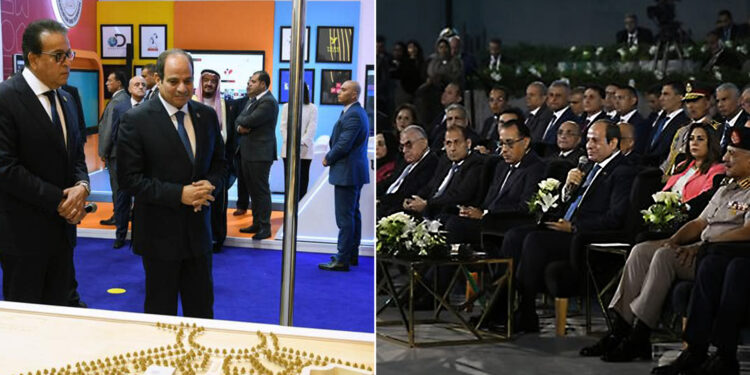Egyptian President Abdel Fattah El-Sisi warned that Egypt may have to re-evaluate its $8 billion program with the International Monetary Fund if international institutions do not take into account the extraordinary regional challenges facing the country.
Egypt signed an $8 billion financial support package with the International Monetary Fund last March, obligating it to reduce subsidies on fuel, electricity, and other primary commodities and allow the exchange rate of the pound to be liberalized, measures that sparked popular anger.
This package helped Egypt obtain additional funds worth billions of dollars from the World Bank and the European Union.
Fuel prices
On Friday, Egypt raised the prices of a wide range of fuel products for the third time this year, with diesel and gasoline prices increasing by between 11% and 17%.
Under the economic reform program agreed upon with the International Monetary Fund, fuel prices are supposed to be raised again after 6 months, according to Egyptian officials.
Last June, Egypt raised the price of subsidized bread by 300%, and Prime Minister Mostafa Madbouly said in July that fuel prices would gradually rise until the end of 2025.
Al-Sisi said at a conference on population, health and human development yesterday evening, Sunday, that Egypt is working on the current program in very difficult regional, international and global circumstances, noting that this is a message to the international institutions concerned with this matter, including the International Monetary Fund and the World Bank.
He added that Egypt lost between 6 and 7 billion dollars in revenue during the past ten months, and the situation may continue for at least another year.
The Houthi group’s attacks in Yemen on shipping traffic in the Red Sea forced ships to divert their course away from the Suez Canal, causing their revenues to drop to $870 million in the second quarter, compared to $2.54 billion in the same period last year.
Al-Sisi added that the program that Egypt agreed upon with the IMF must be reviewed if it will burden people with what they cannot bear.
Fund review
Egyptian officials are scheduled to participate in the annual meetings of the World Bank and the International Monetary Fund, which will be held in Washington this week, amid expectations that they will hold talks with officials from the two institutions.
The IMF was scheduled to conduct a new review of the loan agreement concluded with Egypt at the end of last September, but the Fund postponed the review to a date that has not yet been determined, thus postponing Egypt’s obtaining a new tranche of the loan worth $1.2 billion.
According to the Fund, the most important economic reforms in Egypt include switching to a flexible exchange rate system, tightening monetary policy and public financial policy, slowing spending on infrastructure to reduce inflation, and maintaining the sustainability of debt sustainability, while enhancing an environment that enables the private sector to carry out its activity. .
The International Monetary Fund stressed that these policies will contribute to maintaining macroeconomic stability and restoring confidence, and will also enable Egypt to confront the challenges posed by recent external shocks.



